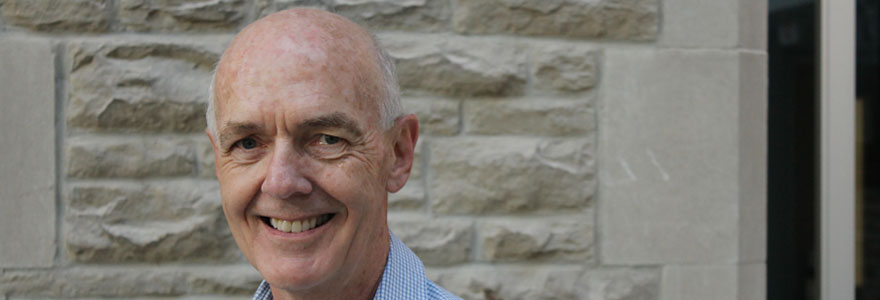News and Updates
Contact
Faculty of Social Science
Social Science Centre
Room 9438
Western University
T. 519-661-2053
F. 519-661-3868
E. social-science@uwo.ca
In Memoriam - David Sherry
May 03, 2023
David Francis Sherry, emeritus professor in the department of Psychology, passed away on Wednesday, April 19, 2023, at the age of 72.
The family has established a scholarship fund to support students researching in the Advanced Facility for Avian Research (AFAR), in David's memory.
Scott MacDougall Shackleton worked closely with David, and prepared this memoriam:
David Sherry grew up in Hamilton, Ontario, and earned his undergraduate degree in Psychology at McMaster University. He began his training as a scientist at a time when the comparative study of animal cognition focused almost entirely on the study of laboratory rats and pigeons. By bringing together ecology, cognition, and neuroscience, he contributed to a revolution in the study of animal psychology, demonstrating the power of approaching cognitive capacities as evolutionary adaptations that serve natural behavior. From early days, David’s work was characterized by innovative thinking and novel experimentation. He did work with Bennett (Jeff) Galef on social learning of food preferences and social transmission of novel foraging in rodents and birds. This work was critical in demonstrating social learning by processes other than imitation.
David then moved to the University of Toronto, where he earned his Masters and PhD and worked with Jerry Hogan and Nicholas Mrosovsky on the behavior of jungle fowl. He then moved to an NSERC-NATO funded postdoc at Oxford University, where he began the work on memory in food-storing birds for which he is so well known. Here he established an approach that combined thorough knowledge of the ecology of his subjects, field work, and creative and novel experimental techniques. In one example of this creativity, he used a Geiger counter to relocate radioactively labelled seeds they offered birds to cache, allowing them to document how birds distribute their cached food and how long they wait to return to collect it. In a brilliant experiment that conclusively demonstrated the use of memory to recover cached food, David took advantage of the natural “split brain” of birds. He allowed birds to cache seeds with one eye covered, and then search for the seeds using either the eye that had been functional during caching, or the eye that had been covered. Remarkably, the brain hemisphere receiving input from the functional eye knew the location of cached food even when the other did not!
Returning to Toronto from Oxford, David progressed from postdoc through to associate professor, publishing his classic papers on the hippocampus, spatial memory, and food storing. He demonstrated this brain region is critical for the memory of stored food locations. He also published a landmark paper with Dan Schacter on the evolution of multiple memory systems. This paper is considered by many to have inaugurated a new era in the study of animal cognition, one that combined evolutionary theory, ecology, and neuroscience.
In 1990 David moved to Western University, where he remained for the duration of his academic career. Over the years David’s research breadth further grew to include studies of hippocampus and memory in wild rodents and a variety of bird species including migrating birds, birds that parasitize the nests of other species (cowbirds), and perhaps most famously food-storing chickadees. He also continued to branch out, training students in more diverse topics including bee cognition, neurogenesis, and many other topics, always exploiting new technologies and using clever research designs to probe the interface between ecology, animal cognition, and neuroscience. David also played a pivotal role in founding the Advanced Facility for Avian Research at Western.
David was an outstanding teacher and communicator. Perhaps partly due to his early training in theater, he had a beautiful way of pacing his lectures to achieve a subtle and compelling drama. He is known by former students and colleagues alike for the kind way he taught, often starting a question with “I may have misunderstood, but…” followed by a clear statement of the problem and leading gently to an appropriate answer.
Beyond the classroom, David was a generous and caring mentor to scores of his own and others’ students, and to junior faculty. David has also fostered robust collaborative training partnerships between Canada and Brazil. At Western he helped develop undergraduate programs in animal behaviour and neuroscience, and he was director of the interdisciplinary graduate program in neuroscience. For these and other contributions he has been recognized with teaching awards, and one of Western’s highest honours, the Distinguished University Professorship.

